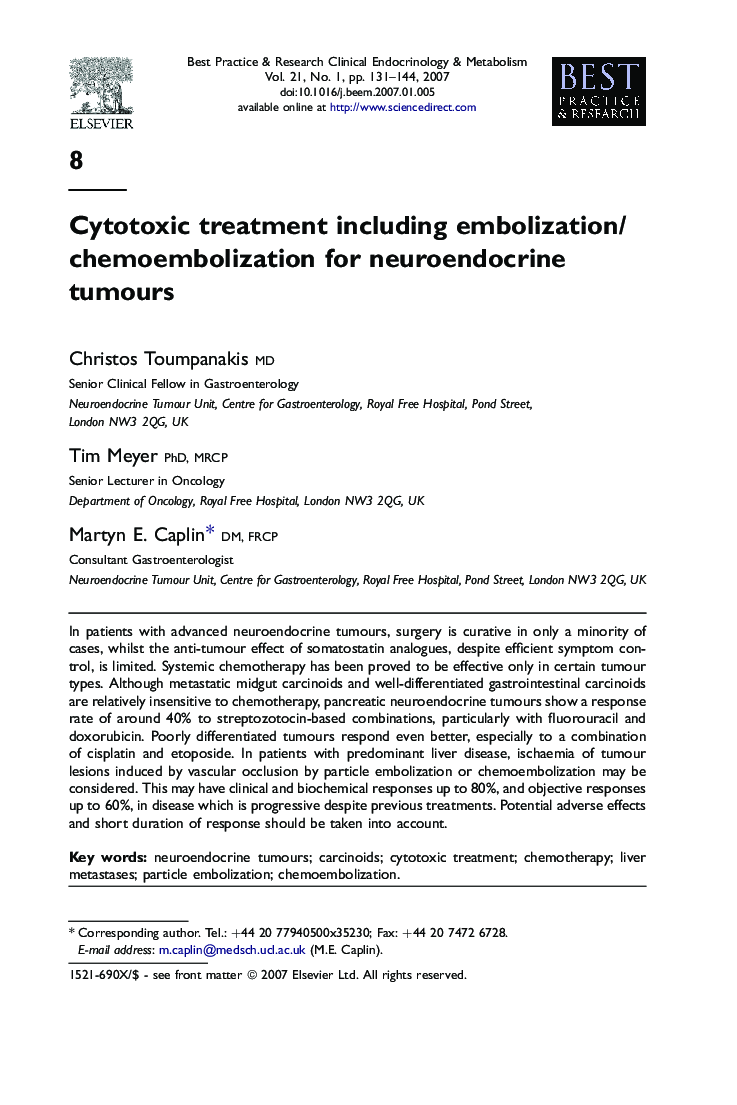| Article ID | Journal | Published Year | Pages | File Type |
|---|---|---|---|---|
| 2791945 | Best Practice & Research Clinical Endocrinology & Metabolism | 2007 | 14 Pages |
In patients with advanced neuroendocrine tumours, surgery is curative in only a minority of cases, whilst the anti-tumour effect of somatostatin analogues, despite efficient symptom control, is limited. Systemic chemotherapy has been proved to be effective only in certain tumour types. Although metastatic midgut carcinoids and well-differentiated gastrointestinal carcinoids are relatively insensitive to chemotherapy, pancreatic neuroendocrine tumours show a response rate of around 40% to streptozotocin-based combinations, particularly with fluorouracil and doxorubicin. Poorly differentiated tumours respond even better, especially to a combination of cisplatin and etoposide. In patients with predominant liver disease, ischaemia of tumour lesions induced by vascular occlusion by particle embolization or chemoembolization may be considered. This may have clinical and biochemical responses up to 80%, and objective responses up to 60%, in disease which is progressive despite previous treatments. Potential adverse effects and short duration of response should be taken into account.
